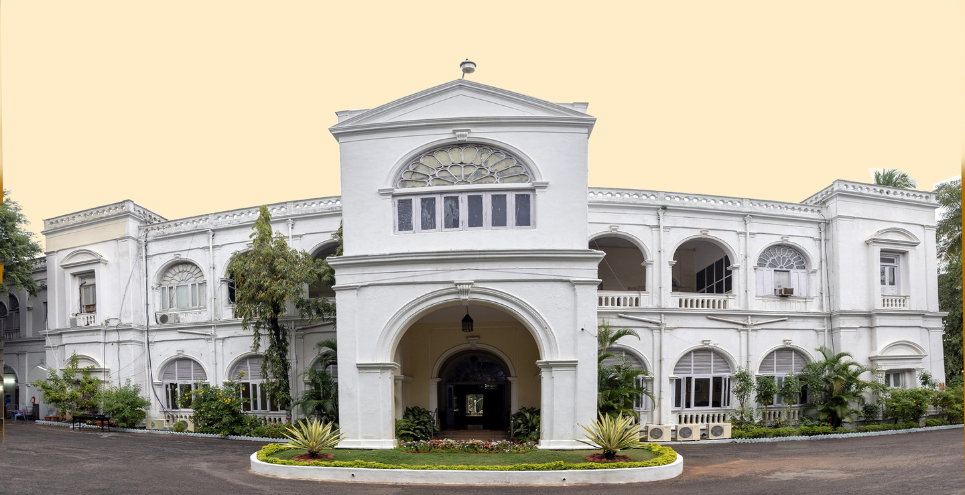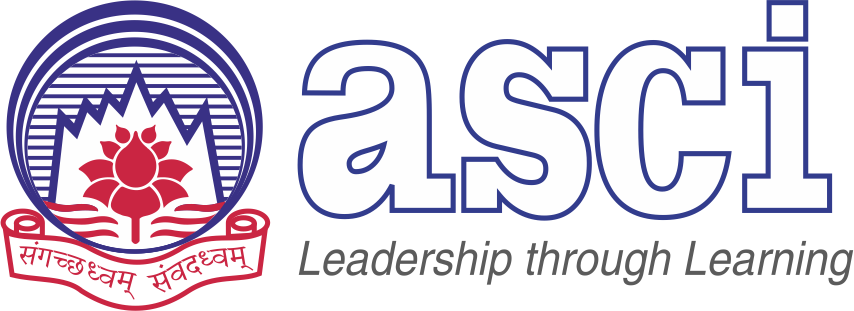Leading Strategic Innovation – Programme Overview
In today’s dynamic business landscape, Human Resource Management (HRM) is not confined to the HR department alone. Line managers, who directly interface with employees daily, play a critical role in shaping workplace culture and driving organisational effectiveness. The increasing competitiveness in the business environment underscores the need for innovative HRM practices that can significantly contribute to business performance.
Organisations increasingly recognise that aligning HRM strategies with business goals is essential for agility and resilience. Therefore, a shared understanding between line managers and HR professionals is crucial to ensure that HR practices are integrated seamlessly from the shop floor to the strategic level.
This programme is designed to equip line managers with the knowledge, skills, and perspective necessary to perform their HR responsibilities effectively. It aims to build synergy between line and HR functions, enabling organisations to respond proactively to evolving business challenges.
OBJECTIVES
- Understand the Role of Line Managers in HRM: Clarify line managers’ strategic and operational responsibilities in implementing effective HR practices.
- Enhance Recruitment and Selection Skills: Provide tools for effective interviewing, candidate evaluation, and talent acquisition aligned with business needs.
- Develop Employee Engagement Strategies: Enable managers to foster motivation, morale, and productivity through inclusive engagement practices.
- Improve Performance Management Competence: Train managers in setting clear expectations, conducting reviews, and delivering constructive feedback.
- Strengthen Conflict Resolution and Problem-Solving Skills: Equip participants to manage workplace conflicts fairly and effectively.
- Promote Compliance with Employment Laws and Policies: Build awareness of legal frameworks and ethical standards in managing human resources.
- Enhance Employee Development and Coaching: Develop mentoring and coaching capabilities to support team growth and career progression.
- Implement Effective Communication Techniques: Improve interpersonal communication for team leadership, difficult conversations, and trust-building.
- Encourage Diversity and Inclusion Practices: Promote awareness of diversity and inclusion to foster innovation and high-performing teams.
- Align HR Practices with Business Goals: Help line managers integrate HRM strategies with broader organisational objectives.
CONTENT
DAY 1 – Introduction to HRM and the Manager’s Role
Understanding HRM in Context
- HRM goals and functions
- Strategic HR vs. operational HR
Line Manager’s Role in HR
- Bridging business needs and people strategy
- Accountability for people outcomes
HR Policies & Compliance Essentials
- Workplace ethics, labor laws, and grievance redressal
Activity: “HR Challenge” Quiz & Group Discussion
- Bridging business needs and people strategy
- Accountability for people outcomes
DAY 2 – Workforce Planning & Talent Acquisition
Manpower Planning and Job Descriptions
- Forecasting needs, job roles, skills matrix
Recruitment & Selection
- Role of line managers in interviewing and shortlisting
- Behavioral & competency-based interviewing
Onboarding & Induction
- Making the first 90 days matter
Activity: Role-play – Interview Panel Simulation
DAY 3 – Performance & Feedback Management
Goal Setting and KPIs
- SMART goals and cascading objectives
Performance Review Process
- Appraisal frameworks, mid-year and annual reviews
Giving Constructive Feedback
- SBI, DESC techniques
Coaching for Improvement
- Handling underperformance supportively
Activity: Case Exercise – Feedback Role-Play
DAY 4 – Employee Engagement & Relations
- Factors that drive engagement
- Recognition strategies
Understanding Team Dynamics
- Managing conflict and diverse personalities
Workplace Discipline & Grievances
- Progressive discipline process
- Legal considerations for managers
DAY 5 – Leadership Behaviors & Integration
Line Manager as Leader-Coach
- Emotional intelligence and situational leadership
Developing Team Capabilities
- IDPs (Individual Development Plans)
Building a High-Trust Culture
- Communication, integrity, and accountability
Manager’s HR Toolkit
- Templates, checklists, best practices
METHODOLOGY
- Case studies and real-life examples
- Group discussions and role plays
- Simulations and interactive exercises
- Expert-led sessions and peer learning
- Reflective analysis and application of concepts to participants’ organisational contexts
FACULTY
Prof Swarnalatha Jagarlapudi is a distinguished academic and a veteran HR professional with over 36 years of experience across the public and private sectors. She holds an MPhil in Industrial Psychology from TISS, Mumbai and multiple advanced degrees in Applied Psychology, Criminal Law, Forensic Science, HR, International Business, Economics, Foreign Trade, and Mass Communication.
Known for her deep commercial insight and entrepreneurial approach, Prof. Swarnalatha has designed and led impactful leadership and HRM programmes across government, banking, finance, IT, and manufacturing sectors. Her numerous professional certifications—including NLP Practitioner, Stress Management Specialist, and Internal Auditor—complement her academic rigour and practical expertise. She currently serves as a Professor of Human Resource Management.
Participant Profile
Ideally, this programme would suit senior and middle-level executives responsible for managing human resources in their respective departments. It is particularly relevant for professionals involved in Human Resource Development, performance appraisal, workforce planning, employee relations, and strategic HR implementation. The course benefits those who are pivotal in aligning people’s practices with organisational goals and fostering a productive work environment.
VENUE
The programme is fully residential and the participants will be accommodated in air conditioned single occupancy rooms. The college does not provide accommodation for the family. The college is Wi-Fi enabled in a comprehensive way.
DURATION
The programme duration is 5 days starting from September 22 - 26, 2025. The participants are expected to arrive a day before commencement and may leave after the conclusion of the programme.
PROGRAMME FEE
Residential Fee: Rs. 69,500/- (US $ 1086 for foreigners) plus GST as applicable (presently 18%) per participant. The fee covers tuition, board and lodging, courseware (in electronic form) and other facilities of the College including internet usage.
Non-Residential Fee: Rs. 59,500/- plus GST as applicable (presently 18%) per participant. The fee covers tuition, course ware (in electronic form) working lunch and other facilities of the College including internet usage.
A discount of 10% on the Programme fee for three or more participants from the same organisation will be given, provided the payment is credited into our Bank account before September 19, 2025.
Note: Kindly forward us the details of Bank/Wire transfer of fee payment indicating the Programme Code (Prg/25-26/1/ 60) e-mail to: [email protected] for confirmation.
MEDICAL INSURANCE
The nominees are requested to carry with them the proof of Medical Insurance. The sponsoring agency is required to endorse the nominees' medical coverage in the event of hospitalization
LAST DATE FOR NOMINATION
Please use the prescribed/attached form. Last date for receiving nominations is September 08, 2025. Kindly contact Programmes Officer for further details (contact details are given at the end of the nomination form).
LAST DATE FOR WITHDRAWAL
September 15, 2025. Any withdrawals after this date will entail forfeiture of fee paid, if any.
“The AMP is very useful in gaining knowledge in evolving higher management objectives, strategy, decision making, inclusiveness, CSR, digital transformation, and sustainability…” – Shri GSSV Suresh, GM, NMDC Ltd
ASCI ALUMNI ASSOCIATION
Participants of the College programmes will automatically become members of the ASCI alumni association.
CERTIFICATE OF PARTICIPATION
The College issues a Certificate of Participation on conclusion of the programme.

